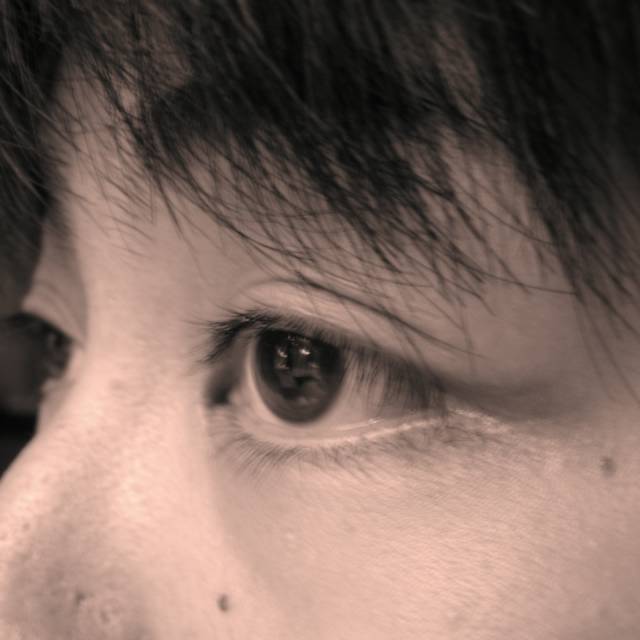censored proposal of a Japanese prince: let's have concubines!
In Japan, a comment made by one of the members of the royal family has stirred up a controversy over the proposed change in the Imperial Household Law, a law that governs all aspects of the royal family.
By Constitution, Japanese emperor (and by extention, members of the royal family) has a political and civic status separate from the rest of the population. The emperor's function is limited to those of purely simbolic nature, and he is not allowed to have any political voice. He does engage in the relationship with other countries, but it is limited to the fostering of "amicable atmosphere" and does not involve any political decision. In domestic matters, he is practically a decorative fixture, supposedly symbolizing the unity of the Japanese people, by the consent of the very people he symbolizes. His appearances in various scholarly and philanthropic organizations are highly valued as a token of recognition, and his occasional visits to numerous localities throughout Japan are enthusiastically welcome (or so it is staged), but those are pretty much all he is allowed to do. In a sense, he and his family are reduced to a very inhumane condition, utterly deprived of any political rights, forced to perform the roles "we the people" collectively (and imaginatively) demand him to play in exchange for the allowance we grant them from our tax dollar (I should say yen here). The Imperial Household Law articulates the details of these arrangements, based on the Constitution.
The necessity of ammendments of the Imperial Household Law arose in the absence of a male descendant of the current crown prince. The Law, supposedly according to the "uninterrupted male succession ever since the days of the gods (Japanese royal family has its mythical origin in gods)," only allows male descendants of the emperor to succeed him. Therefore, given the absence of a male descendant of the crown prince, it is likely that there won't be anyone who qualifies to be the emperor after the next one. (Further complication is the ill health, psychologically and physiologically, of the wife of the crown princess, who married him years ago, at his persistent "requests," leaving her brilliant career as a diplomat. It is speculated unlikely that she would have another child.) Prime Minister Koizumi has assinged a committee to discuss the possible solution to the problem, and its mainstream discussion has been to allow female succession of the imperial throan (with which imperialist rights have been more than furious).
Then came the Mikasanomiya comment.
In a newsletter of a social welfare organization to which he belongs, this prince, who is the fifth in the line of succession as a cousin of the current emperor, expressed his opposition to the idea of female succession. Excusing himself that since the newsletter's circulation is limited in number, his political remark would not constitute a violation of the ban of political functioning of the members of the royal family, he discusses the reason of his opposition and proposes some "solutions" to keep the male line of succession.
When I first came across the article in a major Japanese newspaper, I was quite appalled by the anachronistic diction and logic. His only argument against the female succession was the "solid historical fact" that "the imperial throne has, since the days of the gods and mythology, over 125 generations, been succeeded by male descendants, without a single exception." His claim of uninterrupted male succession is wrong, to begin with. There were empresses, many of whom known for their outstanding political aptitude and literary talent (Tanka poetry being a requirement of sophistication in the imperial court of the past). What is more appalling is the fact that this prince seems to truly believe in the strange, fanatic-rightish reasoning of the (manufactured) tradition of male succession being the source of authority and importance of the Japanese imperial family. To me, who can't even comprehend the necessity of the emperor and the admiration and the reverence some Japanese people hold toward the imperial family, his reasoning is completely alien, incomprehensible, and scary (as a kind of reminder).
The Yomiuri newspaper reports that Mikasanomiya "proposed 1) to bring back some ex-members of the royal family 2) to allow a female descendant to adopt an ex-members of the royal family (of the male line of succession) and to let him be the successor and 3) to restore some of the discontinued branches of the royal family, etc." According to an article on the Daily Telegraph, the "etc." part included a far more appalling idea, apparently censored in the Japanese mainstream media. Mikasanomiya's proposals included, with a defensive gesture that he understands that "this might be a little difficult considering social climate in and outside the country," the bringing-back of "concubines." Okay... concubines. How anachronistic is that? Emperors should be able to reduce women to child-bearing machines? Only to make sure that boys would be around to be emperors? Concubinage is different from polygamy. Polygamy could be a result of a different yet valid construction of romantic relationship, but concubinage, at least in this case, is an arrangement solely for the sake of the creation of male child. The patriarchal, misogynystic disregard of the female dignity so concisely expressed here (and apparently inherent in the imperial thoughts) disgusts me. And the fact that this incendiary part has been hidden from the Japanese public is alarming, infuriating
I don't need an emperor to symbolize the unity of the Japanese people (or whatever reason). Hence, the whole controversy over whether or not to allow female succession of imperial throne is, on one level, completely irrelevant and even somewhat useless. Yet, the values and ideologies that resurface during the debate have such disturbing power that I cannot but speak out, although I'm aware of the stupidity of the entire controversy.




